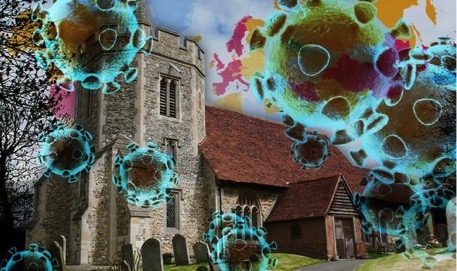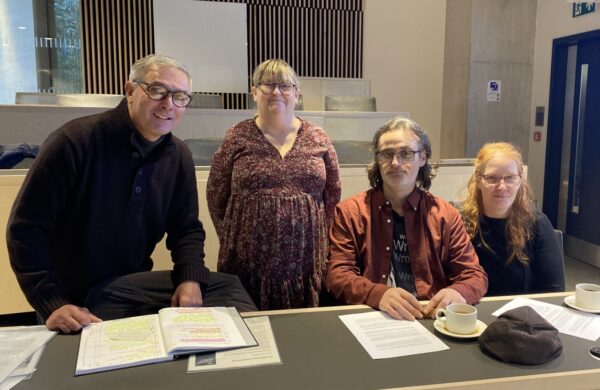The churches’ role in responding to Coronavirus (part 2)
What is the gospel imperative for churches in this challenging time? Church Action on Poverty trustee Stef Benstead has been reflecting on what she's seen. In this second post, she thinks about the links between faith and action.

God is very clear that his people are to be like him: to be holy as he is holy; perfect as he is perfect; loving as he is love. And the Christian scriptures, documenting as they do both God’s interactions with humanity and his declared will, are very clear that God has a special care for the physical wellbeing of the materially poor.
This is why one of God’s descriptions of Christianity is those people who care for the hungry, thirsty, naked, sick, imprisoned by providing what they materially need – food, water, clothes, healing, social contact (Matt 24:34-36).[1]
But note something interesting: God does not at any point link Christianity with how much we talk about the gospel or how many people we ‘save’. God does not say, “talk much about me, that people may hear your good words and glorify your Father in heaven”, but “let your light [i.e. good deeds] shine before others, that they may see your good deeds and glorify your Father in heaven” (Matthew 6:16). God does not say, “Love your enemies, speak of the Gospel to them, and convert them to salvation. Then your reward will be great, and you will be children of the Most High, because he talks to the ungrateful and wicked.” Rather, God says, “Love your enemies, do good to them, and lend to them without expecting to get anything back. Then your reward will be great, and you will be children of the Most High, because he is kind to the ungrateful and wicked” (Luke 6:35).
When Jesus was asked about obeying God, he never said, “Go and talk about me”. Jesus said, “I desire mercy, not sacrifice” (Matthew 9:13), “invite the poor, the crippled, the lame, the blind” to your dinner table (Luke 14:12-14); “be generous to the poor” (Luke 11); “sell everything you have and give to the poor” (Mark 10:21). In the Gospel of John, we are told not merely to love our neighbour “as ourselves”, but to love one another as Jesus has loved us (John 13:34; 15:12). And the definition of neighbour is anyone in need, even someone who despises us or whose claim on us would take us to considerable time, effort and expense.
This is a time for us to do the same. It is not a time for worrying if we can sustain the level of help that people need. It is not a time for fretting about whether we do exactly the right thing. It is a time for providing help, trusting in God to sustain us, and knowing that even if we run out of capacity at least some people will have been helped in the meantime. Let us go out and bring glory to God through our good deeds.
[1] This is not a salvation by works, for the good deeds are the fruit of a saving faith in Jesus’ death for our sins. They are the demonstration of our salvation, not the cause of it.
At Church Action on Poverty, we know that some churches are struggling to keep services open because their volunteers are themselves vulnerable and need to self-isolate. But many others are finding creative ways to serve and keep people connected.

